By:
- Inga Kiderra
Published Date
By:
- Inga Kiderra
Share This:
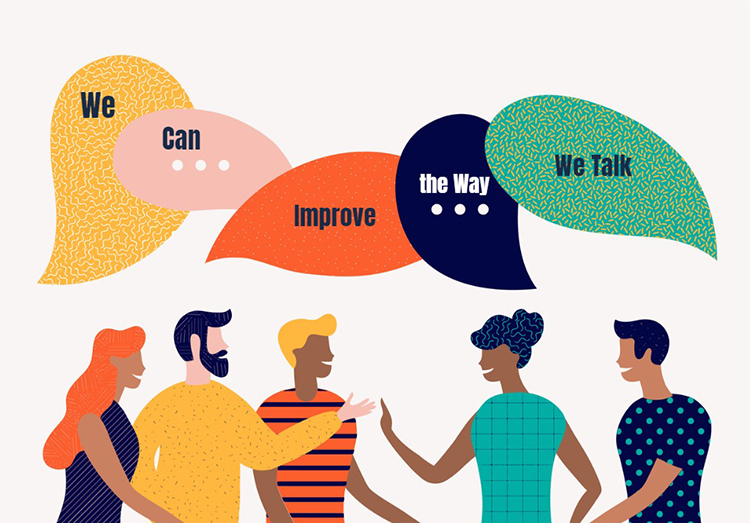
Image by iStock.com/VictoriaBar
We Can Improve the Way We Talk
Psychology professor Gail Heyman discusses simple steps we can take to have better conversations with friends, family—or anyone, really
If all of your conversations are fulfilling and none are ever fraught, you can stop reading now— this story isn’t for you. If you’re like the rest of us and sometimes find yourself wishing you could have better conversations, however, then you’re in the right place.
We can improve the way we talk with each other, says UC San Diego psychology professor Gail Heyman. Some people may be better conversationalists to begin with, but Heyman would like to discourage you from “spending much time thinking about ‘natural differences’ in this or other aspects of life,” she said, “because then you start going in unproductive directions like feeling superior or inferior to others. It’s better to focus on things you have control over, and there is a lot you can do to get better at conversations.”
Heyman specializes in social cognition—or people’s thought processes as they navigate the social world. An award-winning teacher and accomplished researcher, she has studied how kids learn to lie and cheat and has, among other things, experimented with reducing racial bias. She is also interested in cultural influences on cognition and how people build interpersonal trust.
Together with her husband and one of her three children, Heyman developed a free app called “Beyond Small Talk” (for both iOS and Android). The app—inspired by an insightful conversation with a colleague she’d worked with for years and thought she knew through-and-through (but didn’t)—offers concrete starting points for conversations, so you can get to know the people in your life better.
Based on research that went into the app, as well as on ongoing exploration since, Heyman also has some general tips for talking to others better.
Oh and, before you go and get intimidated, thinking you’re in the presence of a master: Does Heyman herself always have great conversations? “Absolutely not,” she said. “I am an introvert, and I sometimes feel like hiding in a corner rather than trying to make conversation. Also, like a lot of people, I often feel stressed and pulled in many different directions, and as a result I can be quite distracted when I talk to people.
“However, I am a curious person and I’m always trying to figure out what I can learn from the people I meet. Also, I don’t care very much if someone has a negative reaction to me, and that really helps.”
First, some definitions.
What makes a conversation a “good conversation”?
Chat, talk, heart-to-heart— conversations come in many shapes and sizes. There is no one type that’s best for every occasion and every group.
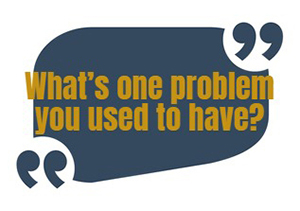
“Something can be considered a good conversation if it does what the people involved want it to do,” Heyman said. “People have a wide variety of goals in conversations, and in some cases the goals are strategic, such as convincing someone to agree with you or getting them to realize that you exist. These kinds of conversations are important, but they don’t interest me all that much.
“I am interested,” she said, “in conversations in which people gain new insights about each other, themselves or the world—the kind of conversations college students often have when they are living in the dorms and staying up much later than they should. I loved these conversations, and still remember some of them and the insights I gained. After college, I noticed that the people around me rarely had those kinds of conversations, and I missed that.”
A “good conversation” here, then, is one that promotes understanding.
Good conversations are good for you
Heyman’s interest in deeper conversations stems not only from thinking that “they are inherently interesting, but also because they can build trust and strengthen relationships.” Research also suggests that these conversations can have benefits for people’s health and wellbeing. Several different lines of work point to the conclusion that good conversations are good for you.
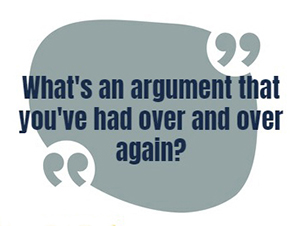
In one study, for example, researchers recorded people’s conversations for four days and coded them. “They found that people who spent less time alone and more time with others had better life satisfaction and that more meaningful conversations (rather than small talk) were also associated with higher wellbeing,” Heyman said.
“Also, we know that, increasingly, personal conversations are a path to closer relationships,” she said, “and there is a lot of research showing that close relationships predict happiness.”
While loneliness is associated with inflammatory biomarkers and impaired immune function, strong and supportive social ties are associated with a whole host of positive health effects, she said.
Seeding deeper conversations – at the holiday table and beyond
One way Heyman likes to promote good conversations is to seed them. This is similar to what she does to start a discussion in class, asking people to come prepared to discuss a specific memory, for example.
“When we have conversations, they are based on what ideas get activated in our brains, and what gets activated tends to be a very limited subset of things—often driven by what’s been on our mind recently, what is going on in front of us, and what others are saying or doing,” Heyman said. “This can mean that we often get into conversational ruts, where we keep talking about the same stuff and might not even know some fundamental things about the people we’ve known for a long time.”
External prompts can help you get out of these conversational ruts:
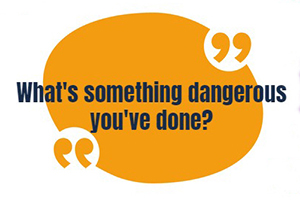
- Heyman recommends checking out “Great Questions” on the StoryCorps website. You could also pick out questions from her app, “Beyond Small Talk.” Samples there include “What’s one problem you used to have?” and “What’s one thing that happened to you this year that you didn’t expect?”
- Objects can be good too. Consider asking people to bring something to talk about—it could be a favorite picture or an object. Or it could be an object or a picture that represents something meaningful that happened over the past year.
- Intentionally exposing people to shared experiences also works. “Think of how book clubs can let people discuss values based on a shared experience in a nonthreatening way,” Heyman said. “I encourage people to get creative in trying out new activities that promote learning and everyone feeling included. If the activity is fun or funny, that is an added bonus.”
One pitfall of deeper conversations, of course, is that they can tap into deep-seated conflicts. “There is no way to avoid this completely,” Heyman said, “but risks can be minimized by thinking about issues that have come up before and considering other people’s anxieties.”
So you hit a minefield–what now?
In Heyman’s words:
“It is obviously better to try to prevent it before it happens. Sometimes they are quite predictable, like if every time you get together for Thanksgiving you end up having the same argument. If this is you, there is no one-size-fits-all strategy. It sometimes works to simply acknowledge the problem and ask the people who are involved what they think can be done to help.
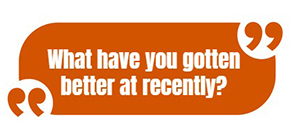
“Some people use more heavy-handed strategies. Someone I know actually handed all of her Thanksgiving guests a list of forbidden and recommended topics. The recommended list was funny, and I suspect that helped make it work, but the strategy can backfire if people feel that others are trying to shut them up, or seem to care more about stirring up drama than getting along.
“If you do hit a minefield, it is often best for everyone to step away for a little while before deciding how to proceed. When everyone really wants to get along, it may require little more than a genuine apology or making fun of yourself.
“But people need to recognize when they are in bad cycles. Sometimes there is just no easy solution.”
Listen
Listen, listen and listen some more. Really tune in and try to understand what others are saying.
“When people think about being a good conversationalist, they focus on the talking part, and not the listening part,” Heyman said. “We often think of listening as a passive process, but it doesn’t have to be. Active listening involves giving your undivided attention to people. This helps people feel understood and cared about, and it can build trust and strengthen relationships.”
But don’t kid yourself into thinking this is going to be easy. It’s not, it’s hard. Put away the electronics if you can and focus on what’s being said (not how it relates to you, or what you want to say next).
Two key thoughts, before you go
Curiosity and humility—both are necessary for approaching other people in a way that builds connection.
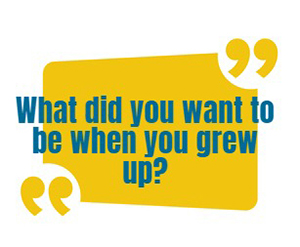
Heyman: “There are billions of people in the world, each with a rich mental life, but we only have direct access to our own. We can never know what it would be like if we had been born in another place, at a different time, or into a different family. We can’t even be sure what it’s like to experience life from the perspective of the people who are closest to us. This leaves gaps in our understanding that we often try to fill based on our own experiences and perspectives, which means we often get it wrong.”
One fix to this conundrum is to try and have more meaningful conversations with the people around us— striving to really learn about them and understand the experiences that shaped who they are and what they care about.
Finally, don’t overdo it. Sometimes small talk is still the way to go. Next time you’re in a grocery line or waiting at a post office, you might not want to dive right in to the personal and poignant—unless you like to see people run.
Share This:
Stay in the Know
Keep up with all the latest from UC San Diego. Subscribe to the newsletter today.



